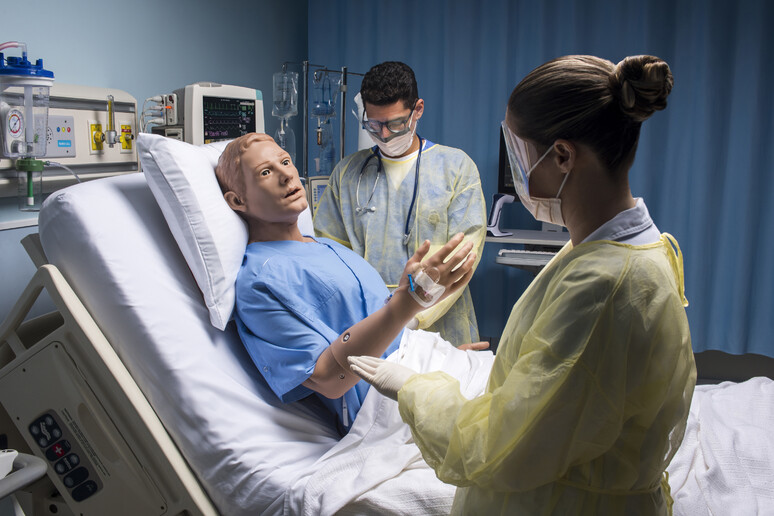A new robot called Hal s5301 is "the
most realistic humanoid robot in the world", the University of
Trieste, the first testing it in Europe, has said.
The robot, which is equipped with artificial intelligence and
real physiological reactions, has been installed in the centre
for medical simulation and advanced training of the hospital of
Cattinara. Produced by the Accurate-Gaumard Scientific company,
it will be used to boost and fine-tune the training of doctors.
Hal s5301 is run by a control room: it talks, sweats, and moves
its eyes and arms and is structured to enable the practice of
the main applied medical technical techniques in emergency care,
intensive care and surgery. The robot reproduces the cardiac,
respiratory, vascular and cerebro-vascolar physiology that can
be examined using the tools used in clinical practice.
It thus becomes possible to simulate hospital activity upon the
arrival of a patient, throwing up diverse clinical cases
proposed by the teachers: by observing Hal s5301 and his
symptoms, they formulate their diagnosis and act on it. At the
end comes the debriefing, led by the doctors.
"For the first time AI has been integrated into a humanoid
simulator in medicine," explained Patrizia Angelotti, managing
director of Accurate, "and the social applications of advanced
interdisciplinary training will be widely used in the reduction
of errors in medicine due to the human factor".
ALL RIGHTS RESERVED © Copyright ANSA











